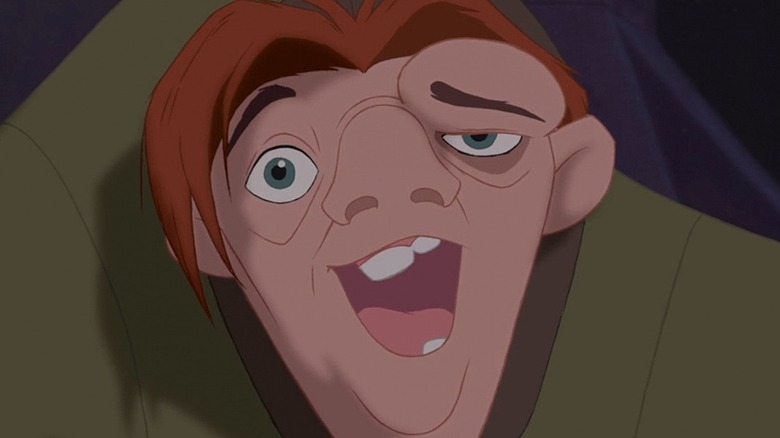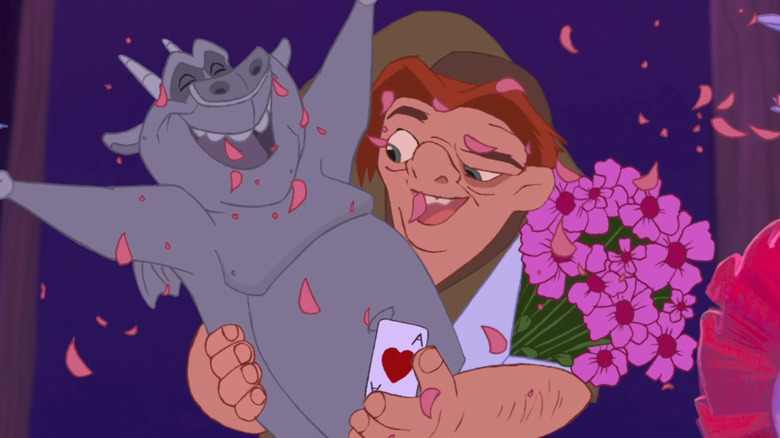Disney's The Hunchback Of Notre Dame Faced Backlash From Victor Hugo's Descendants
The Disney Renaissance of the 1990s saw the release of some of the studio's most acclaimed animated works to date that have arguably shaped how we see the company today more than the films of Walt Disney's era. But while most of these films featured rebellious princesses or talking animals singing their hearts out to Alan Menken songs, one entry in the studio's catalogue from this prolific period went in a drastically different direction that still remains a stand out all these years later.
In 1996, the studio released "The Hunchback of Notre Dame," based on the 1831 Victor Hugo novel of the same name. The film follows the adventures of Quasimodo (voiced by Tom Hulce), the deformed but kind-hearted bell ringer of Notre Dame who yearns to explore and be apart of the outside world, much to the chagrin of his master Judge Claude Frollo (voiced by Tony Jay).
Over the years, "Hunchback" has become a favorite for many Disney fans. With its lush animation, phenomenal set of songs by Alan Menken and exploration of such heavy subject matter as genocide, lust, sin and discrimination, the film is often deemed amongst the studio's darkest features. However, as it is still a Disney animated movie with a G-rating, the film couldn't fully get away with the maturity of its gothic source material, which, as a result, continues polarizing critics (via Rotten Tomatoes). Yet, even the harshest critic reviews couldn't come close to how the Hugo family reacted to the film.
The Hugo family consider the film a hijacking
Disney's adaptation of the immensely depressing Victor Hugo novel, while darker than their usual animated fare, still had to make some notable compromises. The film's inclusion of such elements as slapstick fights, a cutesy goat sidekick for Esmerelda (voiced by Demi Moore) and, most infamously, a trio of comic-relief gargoyles were all clear-as-water efforts made by the company to lighten the film and have arguably been the elements of "Hunchback" that have held up the least.
But perhaps no one was more outraged by these family-friendly additions than the descendants of Victor Hugo themselves. During the film's 1996 release, the great-grandchildren of the author would publish a letter in the newspaper expressing their frustration with the Mouse House (via Associated Press). "We believe that civilization should protect itself against the commercial looting and hijacking of great artistic works,″ the family wrote.
While the family did not seek any profits from the film, they nevertheless felt that Disney should have approached them before adapting the public domain story, while also feeling the film offers no value to children. Disney spokesperson Philippe Ravenas offered a rebuttal to the statements, saying "The movie introduced millions of children to a great work by a great French novelist. Disney is popular, living culture and we're proud of it. For Disney, culture isn't something to be mummified.″
Nevertheless, the film remains beloved by many, spinning off into a stage musical and an upcoming live-action remake starring Josh Gad.

